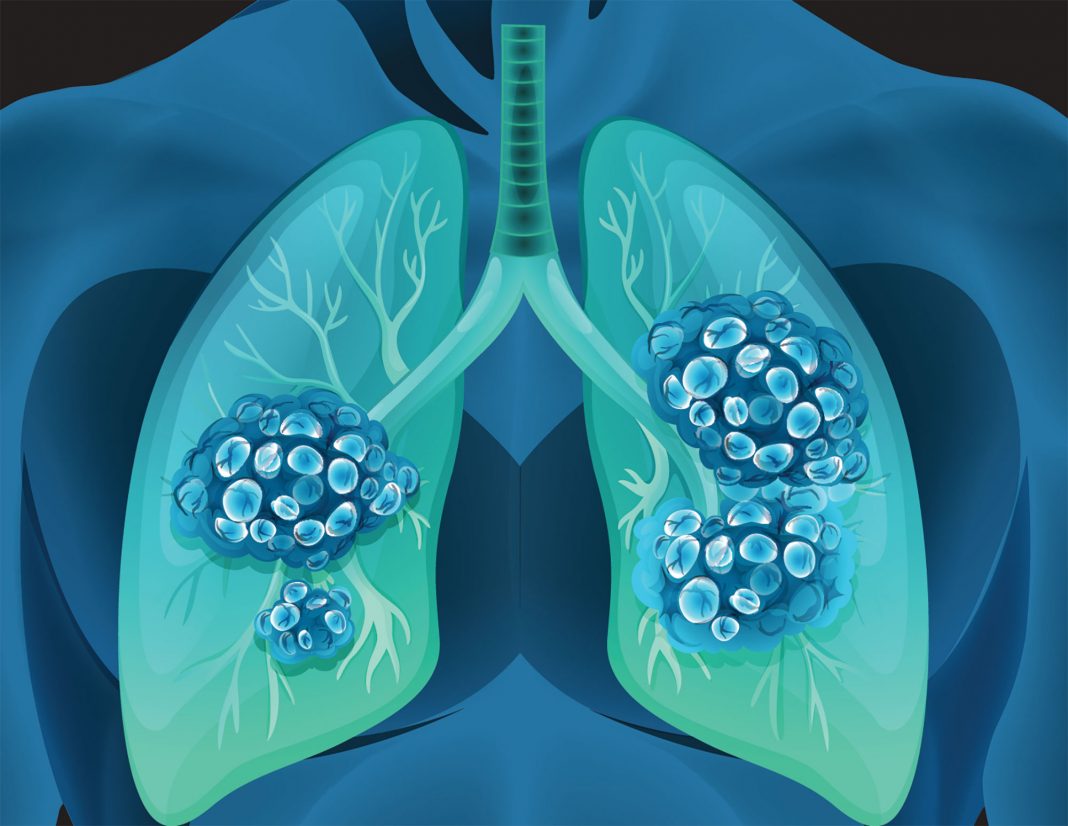Researchers studying the mechanics of the early stages of lung cancer have identified a new potential treatment that may also aid early in detection of the disease. A group, led by researchers from the University of Edinburgh, discovered that the protein TLR2 helps control some of the body’s defense mechanisms when cancerous mutations occur in cells.
The findings, “Toll-like receptor 2 orchestrates a tumor suppressor response in non-small cell lung cancer,” is published in the journal Cell Reports.
“Targeting early-stage lung cancer is vital to improving survival,” wrote the researchers. “However, the mechanisms and components of the early tumor suppressor response in lung cancer are not well understood. In this report, we study the role of Toll-like receptor 2 (TLR2), a regulator of oncogene-induced senescence, which is a key tumor suppressor response in premalignancy. Using human lung cancer samples and genetically engineered mouse models, we show that TLR2 is active early in lung tumorigenesis, where it correlates with improved survival and clinical regression.”
The protein is linked with senescence, a process whereby cells stop growing and secrete a variety of chemicals and other proteins which collectively act as warning signals and defenses against cancer.
After identifying TLR2’s importance, the team used data from human tumor samples to confirm that patients with high levels of the protein in the early stages of lung cancer had increased survival compared to those who had lower levels.
The researchers then used a drug known to activate TLR2 in a mouse model of lung cancer. Researchers found that the drug reduced lung tumor growth.
Further research is needed, the team added, such as clinical trials to confirm whether the drug is effective in humans.
The research is a collaboration between researchers from the University of Edinburgh, University College London, the University of Cantabria in Spain, the Spanish National Research Council, and the Mayo Clinic.
Fraser Millar, PhD, clinical lecturer in respiratory medicine at the University of Edinburgh, said: “I think these results are really exciting. Very little is known about the biology of early lung cancer and by understanding this process more we have identified a possible new treatment for this devastating disease. This project highlights the value of basic science research and how this can be translated into new treatments for patients.”


